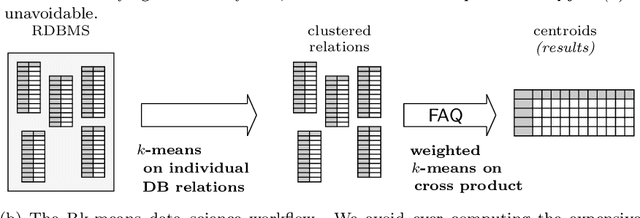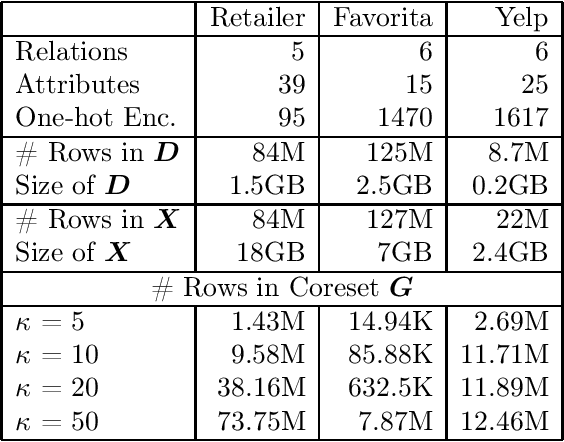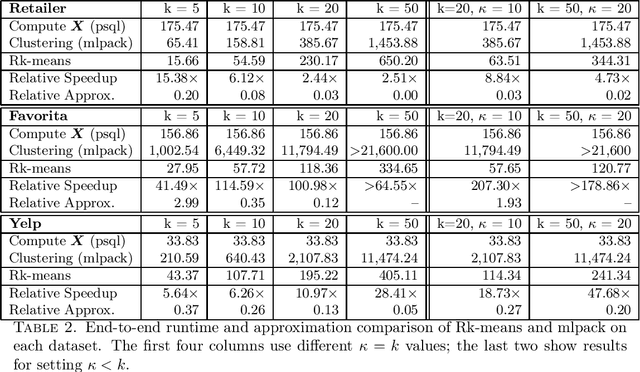Ryan Curtin
Rk-means: Fast Clustering for Relational Data
Oct 11, 2019



Abstract:Conventional machine learning algorithms cannot be applied until a data matrix is available to process. When the data matrix needs to be obtained from a relational database via a feature extraction query, the computation cost can be prohibitive, as the data matrix may be (much) larger than the total input relation size. This paper introduces Rk-means, or relational k -means algorithm, for clustering relational data tuples without having to access the full data matrix. As such, we avoid having to run the expensive feature extraction query and storing its output. Our algorithm leverages the underlying structures in relational data. It involves construction of a small {\it grid coreset} of the data matrix for subsequent cluster construction. This gives a constant approximation for the k -means objective, while having asymptotic runtime improvements over standard approaches of first running the database query and then clustering. Empirical results show orders-of-magnitude speedup, and Rk-means can run faster on the database than even just computing the data matrix.
An Open Source C++ Implementation of Multi-Threaded Gaussian Mixture Models, k-Means and Expectation Maximisation
Jul 28, 2017

Abstract:Modelling of multivariate densities is a core component in many signal processing, pattern recognition and machine learning applications. The modelling is often done via Gaussian mixture models (GMMs), which use computationally expensive and potentially unstable training algorithms. We provide an overview of a fast and robust implementation of GMMs in the C++ language, employing multi-threaded versions of the Expectation Maximisation (EM) and k-means training algorithms. Multi-threading is achieved through reformulation of the EM and k-means algorithms into a MapReduce-like framework. Furthermore, the implementation uses several techniques to improve numerical stability and modelling accuracy. We demonstrate that the multi-threaded implementation achieves a speedup of an order of magnitude on a recent 16 core machine, and that it can achieve higher modelling accuracy than a previously well-established publically accessible implementation. The multi-threaded implementation is included as a user-friendly class in recent releases of the open source Armadillo C++ linear algebra library. The library is provided under the permissive Apache~2.0 license, allowing unencumbered use in commercial products.
 Add to Chrome
Add to Chrome Add to Firefox
Add to Firefox Add to Edge
Add to Edge